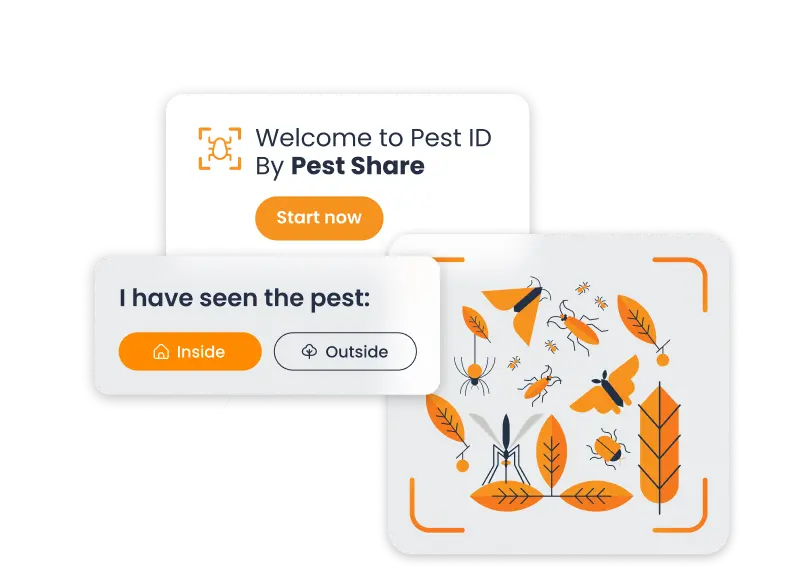Pest control can be a tricky area for property managers, with plenty of room for mistakes that lead to compliance troubles. If pest problems aren’t managed properly, they can quickly spiral into bigger issues, causing damage to the property and making tenants unhappy. Staying on top of common pitfalls can save both time and stress.
Ignoring Regular Inspections
One of the biggest mistakes a property manager can make is not scheduling regular pest inspections. Regular checks help to identify problems early before they grow into larger issues. When pest problems are caught too late, they can lead to property damage and unhappy tenants. Regular inspections aren’t just about fixing what’s visible; they also help prevent hidden issues that can later turn into full-blown infestations. So, staying ahead by being proactive can help avoid many headaches.

Fast Fixes. Happy Residents.
Failing to Respond to Complaints Quickly
Tenants often report pest issues with the hope of a quick fix. If a property manager takes too long to respond, it not only frustrates tenants but could also result in a compliance issue. Ignoring or delaying responses might even violate housing standards, especially if pests like cockroaches or bed bugs are involved. Quick action shows tenants that you care about their comfort and health, which goes a long way in maintaining a good reputation.
Not Keeping Proper Documentation
Keeping records is more important than it might seem. Documentation of all pest control activities, from inspections to treatments, helps ensure that you’re following all required guidelines. Proper paperwork also protects you in case of disputes with tenants or regulatory bodies. Skipping documentation can lead to misunderstandings, making it harder to prove that you’ve taken the necessary steps to control and prevent pest issues.
Using Unlicensed Pest Control Providers
Another common pitfall is hiring pest control services that aren’t licensed or properly trained. Some property managers try to cut costs by choosing cheaper services that don’t have the proper credentials. This can backfire badly, as using unqualified providers might result in subpar service and potential legal issues. Make sure that any pest control company you work with is fully licensed and insured.
Overlooking the Importance of Tenant Communication
Communication is key when it comes to pest control. Not keeping tenants in the loop about what’s being done to manage pests can lead to unnecessary panic or complaints. It’s also a missed opportunity to educate residents on how their actions might be contributing to the problem. Simple things like leaving food out or not reporting minor issues can make pest control efforts less effective. Being open and clear with tenants helps create a team effort in keeping the property pest-free.
Assuming DIY Methods Are Enough
Many property managers think that using do-it-yourself methods will solve pest issues. But DIY approaches are rarely effective for larger infestations or specific pest problems. In fact, trying to handle serious pest issues without professional help can make the situation worse. Instead, relying on a professional pest control company ensures that the problem is addressed correctly the first time.
Neglecting Legal Requirements
Pest control laws vary by state and city, but one thing remains consistent: property managers have a responsibility to maintain a pest-free environment. Not staying updated with the legal requirements can lead to fines or legal trouble. If certain pests are found on your property and you haven’t taken the proper steps to control them, you might be held liable. Knowing the rules helps you avoid these pitfalls and keeps you on the right side of the law.
Overlooking Preventive Measures
Taking steps to prevent pests before they become a problem is just as important as dealing with them afterward. Simple measures like sealing entry points, keeping the property clean, and ensuring proper waste management go a long way in preventing pests from invading in the first place. Overlooking these preventive measures can lead to more frequent infestations, which are both expensive and damaging to your property’s reputation.
Not Having a Plan for Bed Bugs
Bed bugs are one of the most troublesome pests to deal with in property management. Many property managers are unprepared for bed bug infestations, which can spread quickly and lead to tenant dissatisfaction.
Having a plan in place for how to handle bed bugs, including immediate treatment and clear communication with tenants, is essential. This also ensures you’re in compliance with local regulations that often have strict guidelines for dealing with bed bugs.
Forgetting About Common Areas
It’s easy to focus on individual units when thinking about pest control, but common areas need attention too. Hallways, laundry rooms, and shared outdoor spaces can also be a hotspot for pests. Not treating these areas can lead to re-infestation even if the units themselves are kept clean. Including common areas in your pest control strategy helps ensure the entire property remains pest-free.
Not Partnering with the Right Pest Control Service
Choosing the right pest control partner is crucial. A good service provider will not only handle existing problems but also help you create a long-term prevention plan. Some companies like Pest Share offer unique services that integrate pest control into the tenant’s rental package, making it easier for property managers to handle pest issues without extra hassle. Working with a trusted partner ensures that you get the best service and stay compliant with all regulations.
Ignoring Feedback from Tenants
Tenants are your first line of defense when it comes to identifying pest problems. Ignoring their feedback or not taking their concerns seriously can lead to bigger issues down the line. Tenants who feel unheard might start looking for other places to live, reducing your occupancy rates. Listening to tenant concerns and acting on them quickly not only helps keep your property pest-free but also builds trust with your residents.
Not Budgeting for Pest Control
Some property managers see pest control as an expense they can cut back on, but this approach can be risky. Not having a budget for regular pest control can result in larger costs later when infestations get out of hand. Including pest control in your budget helps you stay prepared and ensures that issues are dealt with promptly. It’s more cost-effective to prevent problems than to deal with the aftermath of an infestation.
Relying Solely on Technology
While modern technology like pest identification apps and smart traps can be helpful, they shouldn’t replace traditional methods entirely. Technology is great for early detection and monitoring, but it often needs to be combined with hands-on approaches to be fully effective. Property managers who rely only on tech solutions might miss out on the thoroughness that traditional methods provide.
Misunderstanding Pest Control Responsibilities
There’s often confusion about whether tenants or property managers are responsible for pest control. Not being clear about this can lead to disputes and unhappy tenants. Most often, the responsibility falls on the property manager to maintain a pest-free environment. Being clear about who handles what, and including pest control in the rental agreement, helps to avoid misunderstandings.
Letting Small Problems Turn Big
Finally, the biggest pitfall is letting small pest problems grow into big ones. A few ants or a mouse sighting might seem minor, but they could be signs of a bigger issue. By addressing small problems as soon as they come up, property managers can avoid major infestations. This approach not only saves money but also keeps tenants satisfied and properties in good shape.
Avoiding these pitfalls can make a huge difference in how well a property manager handles pest control. Using services like Pest Share can help simplify many of these tasks by providing a hassle-free way to manage pest issues. This makes life easier for property managers and ensures that tenants live comfortably without the worry of unwanted pests.





